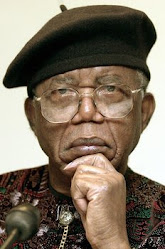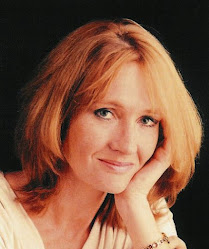 Right from the first page of “Second-Class Citizen” the reader is lead into to Adah’s childhood and the beginning of her dream to succeed in life, her dream to become a "big" person. Nudged persistently by this dream, she is determined to get an education even though it's a privilege given mostly to male children. She overcomes her mother's opposition and never stops learning. Because girl teenagers were not allowed to live by themselves in Lagos, Adah decides to marry. And there the novel begins proper. She marries Francis who is studying to be an accountant and with him come controlling in-laws. She breaks free when she runs to the United Kingdom with her two children to join Francis. Francis doesn’t help her absorb the initial shock caused by her new surroundings, but coldly tells her that from that day onward she must recognize the fact that she's a second-class citizen. Settling down in London, she becomes conscious of her skin colour and discovers that it is a big deal to be a black person in the midst of white people. After resisting strongly and being angry with her husband for accepting and enjoying the label 'inferior', she very slowly becomes conditioned to expect inferior things.
Right from the first page of “Second-Class Citizen” the reader is lead into to Adah’s childhood and the beginning of her dream to succeed in life, her dream to become a "big" person. Nudged persistently by this dream, she is determined to get an education even though it's a privilege given mostly to male children. She overcomes her mother's opposition and never stops learning. Because girl teenagers were not allowed to live by themselves in Lagos, Adah decides to marry. And there the novel begins proper. She marries Francis who is studying to be an accountant and with him come controlling in-laws. She breaks free when she runs to the United Kingdom with her two children to join Francis. Francis doesn’t help her absorb the initial shock caused by her new surroundings, but coldly tells her that from that day onward she must recognize the fact that she's a second-class citizen. Settling down in London, she becomes conscious of her skin colour and discovers that it is a big deal to be a black person in the midst of white people. After resisting strongly and being angry with her husband for accepting and enjoying the label 'inferior', she very slowly becomes conditioned to expect inferior things.Racial discrimination confronts her when they are rejected by the white landlady of a derelict house after they are kicked out of their former apartment by jealous neigbours from her home country. The rejection is devastating and Buchi doesn’t over-dramatize the incident or the after effect which is stinging, bitter and humiliating. For millions of Africans who haven’t left the continent, the word ‘racism’ cannot be fully understood. In actuality, racism is a word whose concept can only fully be understood by those who have experienced it first-hand. It’s why Barack Hussein Obama’s victory means a lot to the African-Americans and other minority groups living in the United States and the world over, it's why Jesse Jackson wept...
Adah sees the real Francis now – a lazy, manipulative Jehovah’s Witness with double standards. He preaches a lot of the things he does not practice and does a lot of things true Jehovah’s Witnesses would never do. For Adah, it’s a case of ‘Monkey dey work, Baboon dey chop'. From the moment she arrives, every convenience her family enjoys is as a result of her persistence and hard work. Second-Class Citizen reminds the reader of The Joys of Motherhood, another of Buchi’s books, where the protagonist faces the problems typical of mothers in the Nigerian society (Second-Class Citizen was written before The Joys of Motherhood). Adah wants to break free from “slavery” under Francis, but she never quite gets to it until the end of the book.
Buchi's protagonist uses the stories, parables and scriptures from the Bible to draw analogies and sometimes rationalize situations, but not in a way many people will be comfortable with. Like in Half of a Yellow Sun by Chimamanda Adichie, Buchi gives a background picture of a period in the history of Nigeria, the years before our independence when well educated men with good secondary schooling or its equivalent rushed out of the country to get quick degrees in anticipation of a period when they would come back to rule their own country . Second-Class Citizen reminds the prolific reader of Unbridled by Jude Dibia. Both Adah and Unbridled’s protagonist Ngozi, are women with not-so-good childhoods who grow up, suffer harsh domination by their men and then break free after enduring too much. Jude Dibia leaves Ngozi in much better shape than Buchi Emecheta leaves Adah – in front of a butcher's shop, not buying any meat but feeling hungry, tired and sick. She's also crying. The diction of Second-Class Citizen is good without being wordy. It’s Nigerian too, the way her characters reason and act. Buchi writes strongly in a way that makes it seem she’s dealing with the very familiar. She also has a very good sense of humour. Second-Class Citizen is an enjoyable and thought provoking novel.
[Image via KinnaReads]




















Very well done... I see a lot of improvement in your review.
ReplyDeleteThank you very much, JD. Thank you.
ReplyDeleteWell, I'm glad JD said this before me. I remember telling you few weeks ago that your reviews were too blurby (if there's anything like that). But now I see there are lots of promises there. You are no more watering them down. You are analysing them critically and that is very good.
ReplyDeleteI didn't like The Joys of Motherhood, so I never tried to read any other Emecheta's work no matter how high the hyping is.
I probably might give it a try. But that would take time.
Got your mail. No ISSN needed. I've spoken with Prof. Ikeme. Thanks.
Yeah...you did say that. I hope you're right about the ISSN stuff, so it doesn't slow our project down. Thanks for stopping by.
ReplyDeleteOsondu, you're such a good writer! I love to write you know, but I have never done a real book review before.Maybe I'll try someday. Keep it up!
ReplyDeleteI don't like the end of second class citizen.What did the end mean? it seemed Adah couldn't escape from Francis, is it?
ReplyDelete@Chao Zheng
ReplyDeleteShe did escape from Francis, it's just that she comes away scalded and bruised physically and emotionally. The author doesn't want to give a happy ending and that helps make the end more realistic. We are not allowed to see her heal and succeed by herself.
Thanks for writing this, Osundu. Very helpful.
ReplyDelete- From an American student in California
@ Caleb - I am glad I could be of help. Thanks a lot for leaving a message and your location. I'm glad I could help you from so far away. I hope you return.
ReplyDeletewho is francis and why is he behaving foolish in second class citizen
ReplyDelete